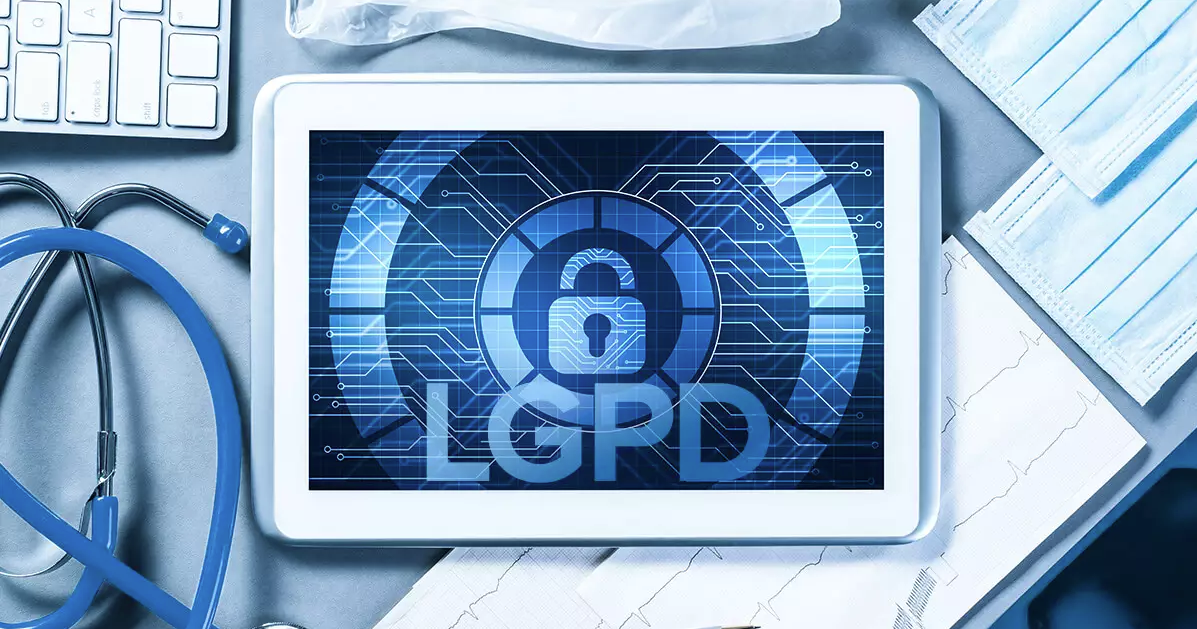The General Data Protection Law – LGPD came to provide more security to the data of several users who had information leaked through cookies installed by third parties. With this new implementation, your healthcare provider needs to adapt, right? Check out more complete material from SAUDI and find out how!
Although it is a matter of professional ethics, confidentiality of information is inherent to healthcare provider audit professionals, the emergence of LGPD in the healthcare field is a concern for many hospitals and healthcare providers who need to comply with the legislation.
Especially because, for the audit sector, the LGPD has a special classification.
In this article, we will explain everything about how to adapt. But you know what is LGPD? Before discussing this matter in detail, we need to understand how and why this law was made.
The General Data Protection Law (LGPD), which came into force in September last year, aims to protect individuals' personal and confidential data. According to him, this information can only be processed with the authorization of the data subject. In other words, companies must establish policies that allow them to prove the holder's authorization to use and/or process the data.
The holder must be very clear about the authorization and purpose of the data.
In this sense, personal data refers to:
- Name;
- Address;
- CPF;
- RG.
Furthermore, the following are considered sensitive data:
- Information about race or ethnic origin;
- Religious belief;
- Member of a trade union or social, political or religious organization;
- Political Views;
- Health data;
- Sexual orientation;
- Genetic or biometric data.
Thus, several companies implemented the demands to comply with the Law, including those in the health sector.
After all, how should OPS adapt to the LGPD?
For LGPD, the data collected is considered confidential data. Health insurance professionals must be extremely careful when dealing with this information and, of course, always know and fully understand the conditions of the LGPD.
The first step operators should take when collecting customer data is to authorize the collection and processing of that data. In this sense, the authorization must be registered clearly and for the purpose of collecting this information, and the data subject must have free access to the data processing. Furthermore, it is also interesting to carry out the diagnosis with the data processed by the company. Therefore, there must be a system that displays indicators, from financial data to customer data, to improve the clarity of information.
What are the challenges in adapting to the LGPD?
The challenges of adapting to the LGPD in the auditing area are many. Mainly because, when the law was enacted, not all operators were competent to do so. One of the challenges is to disseminate a data processing culture that takes information security into account.
This dissemination must be carried out from end to end within your operator, in order to avoid data leaks as much as possible. It is important to ensure that your health plan operator has enough innovation to guarantee this security. Furthermore, some data may be considered confidential, which means it will receive more rigorous treatment.
In general, in the field of healthcare providers, a lot of research is required regarding applied legislation. This is because, for example, in the case of changes to the operator's data portability, it is not yet known which data can be exchanged. Judicialization of possible errors may also occur.
Tips to ensure the safety of your customers
Some attitudes that your healthcare provider should adopt to adapt to LGPD healthcare:
- Create a program to correctly process data and review contracts;
- Train employees;
- Review technology and databases;
- Provide data to your customers in a transparent way;
- Rethink habits that are already common in the sector, such as recording the customer's name on the invoice or using the data for future research;
- Delete data after use;
- Identify the purpose of collecting customer data;
- Have a secure and LGPD-friendly management system.
Discover the SAUDI software!
It is essential to highlight that the majority of Brazilian companies are seeking to adapt to the LGPD in the best way possible. To achieve this, the organization typically creates a compliance area to better understand the legislation.
Are you interested and want this little help to adapt to the LGPD in healthcare? Discover the best and most awarded now medical audit software SAUDI!
SAUDI is a system designed to maintain the “financial health” of Supplementary Health Plan operators.
Our software automates the process of auditing medical service providers' accounts, enabling a clear view for both sides (operators x service providers) and a significant reduction in unnecessary costs.
Acting throughout the entire process, from requesting authorization for medical procedures from the network of providers, to their respective release for payment, SAUDI's objective is for companies in the area to become healthier and achieve better results through better management of your care costs.
The result is surprising in the first 3 months of use!
SAUDI was created to work together with other systems, therefore, it is prepared to integrate with any other application in a simple, fast and functional way. Everything works with complete transparency – collecting and passing on data.
We are not a management system. This is a much more specialized solution with a much clearer return.
Therefore, our software was built to work integrated with any and all ERP. No matter what your management system is, it will be much more powerful with SAUDI's resources.
Have you ever imagined what your fully automated medical bill audit process would be like?
Enter in contact us right now and find out how! ; )









